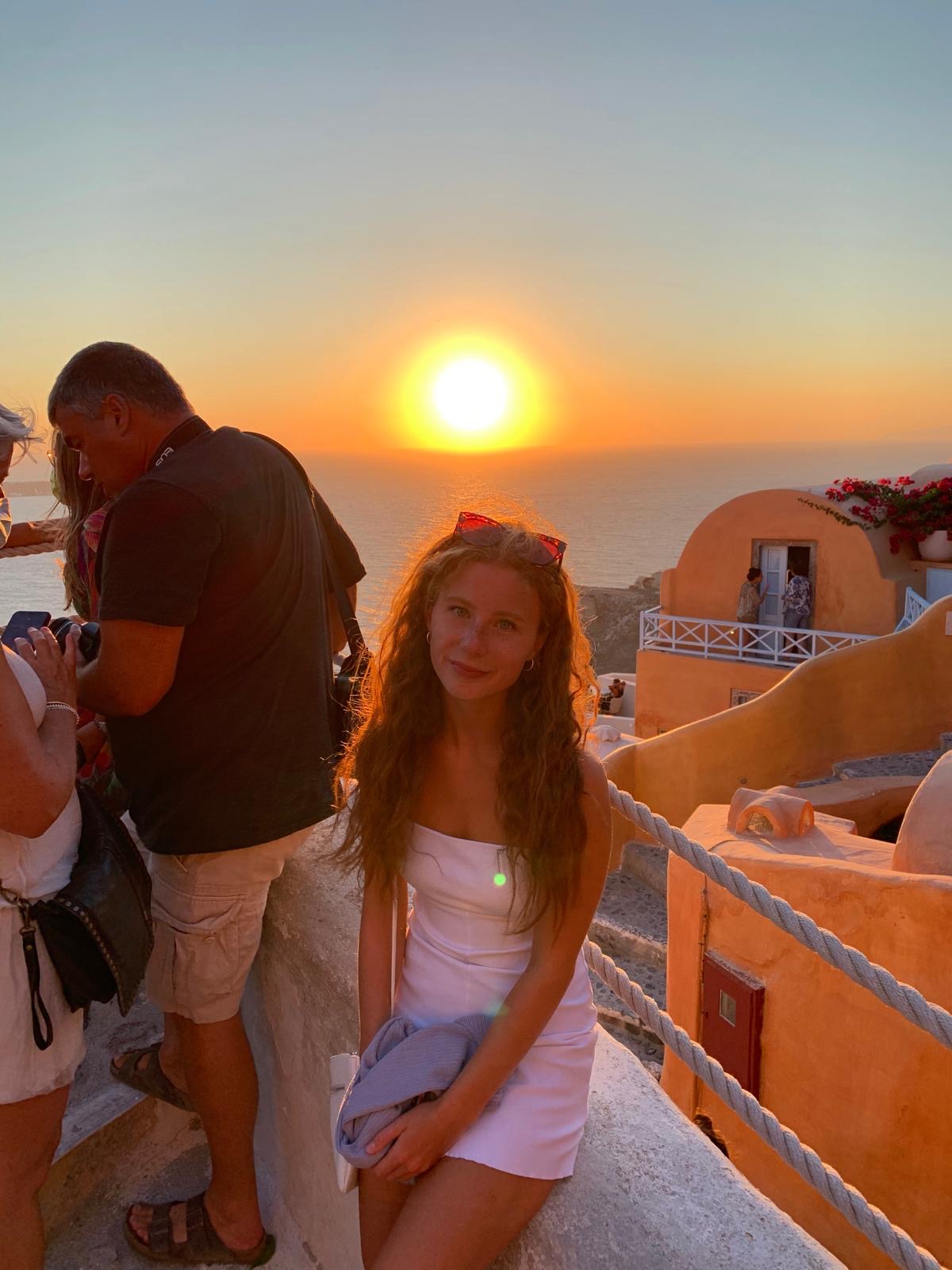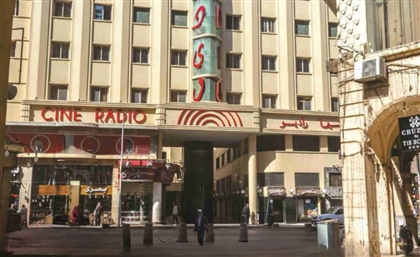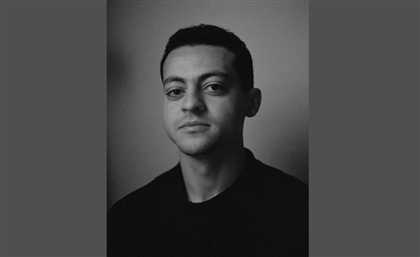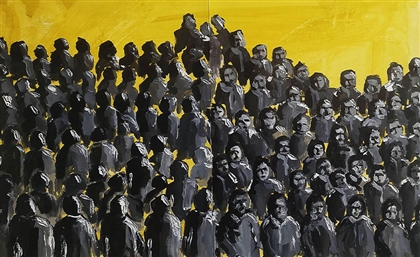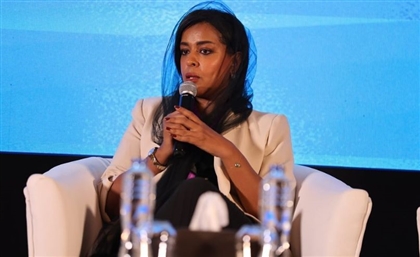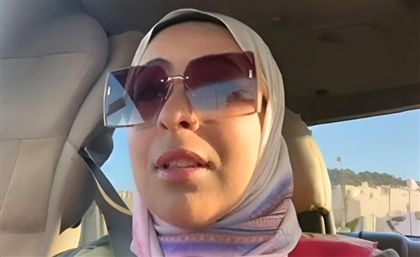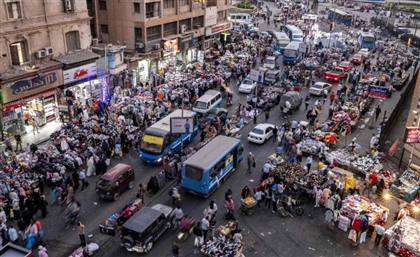Egyptian Elite Freedivers Reveal the True Depths of the Sport
For Khaled El Gammal and Shereen Ramadan, freediving is not about pushing limits, but shedding them.
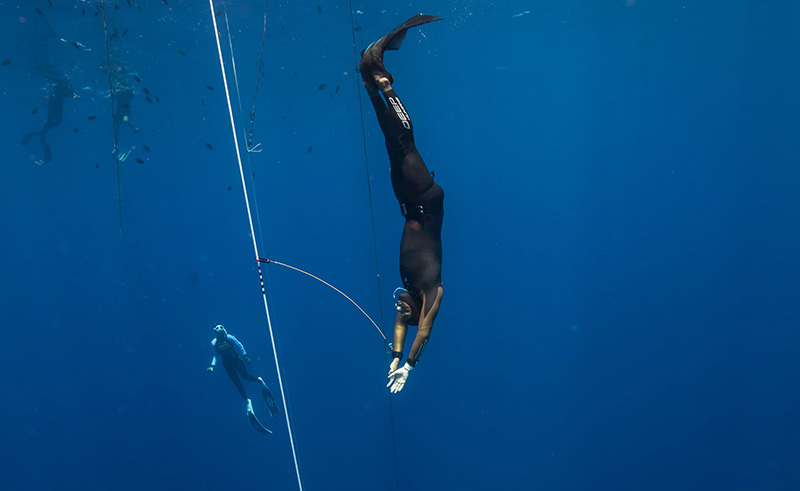
Freediving may be gaining global traction, but it’s still wrapped in mystery. Most outsiders reduce it to scuba diving without the gear, an adrenaline-fuelled dare for those with a loose grip on fear. One breath. No oxygen. Just you and the unknown. It’s unpredictable because the ocean is unpredictable. Because the body is unpredictable. When you descend, you’re not just confronting the sea, you’re confronting yourself.
Khaled El Gammal and Shereen Ramadan are two of Egypt’s most accomplished freedivers. El Gammal is the first Egyptian to reach the 100-metre depth mark, setting a national record in the process. Ramadan, a national record holder herself, was recently named one of the ‘23 Freedivers in the World to Watch’ for 2025 by SSI, alongside fellow Egyptian Ranalina Alim.
El Gammal and Ramadan recently spoke to CairoScene about the deeper meaning of freediving, dialling in from Dahab, where both are based. After setting national and personal records in the sport, they want to set the record straight: Freediving is not about danger. It’s about surrender.
To begin with, what first drew you to freediving? Could you share a bit about your personal journey into the sport?
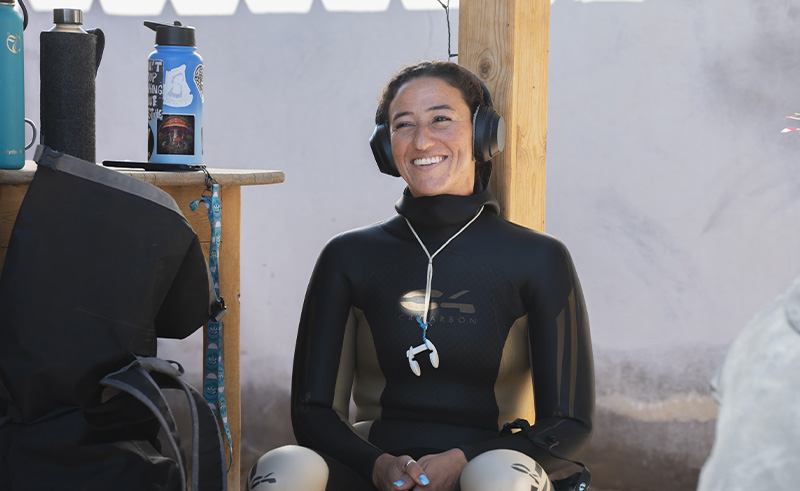
Ramadan: The ocean has always been a constant in my life. I was born in the UAE and spent my early childhood there before moving to Cairo with my family. In my family we are all addicted to the sea: we would often swim, snorkel and scuba dive together, and I remember watching my father dive beneath the surface with quiet awe. That curiosity stayed with me. It started as a playful challenge between my father and I - who could dive deepest - but it planted something deeper.
Years later, I found myself in Dubai, working in renewable energy. On paper, it was the right path, but it never felt like mine. I craved something quieter, more elemental. I asked myself a simple question: where do I want to be? The answer was by the Red Sea.
I left my job, packed up my life, and moved to Dahab three years ago. That decision changed everything. I was in the water constantly: swimming, diving, shedding layers I didn’t know I had. My introduction to freediving came naturally during this time. At first, it was sporadic; I was still working as a scuba diving instructor. But eventually, the pull became impossible to ignore, I committed fully last year. Since then, freediving has become the rhythm of my life.
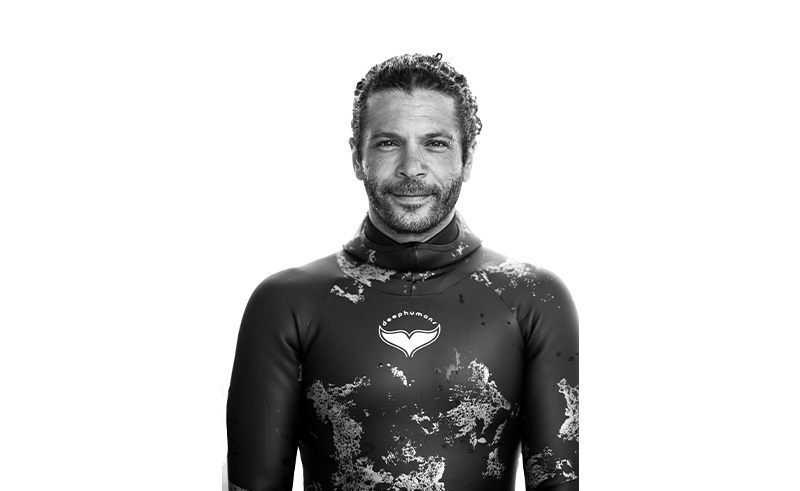
El Gammal: My journey began in 2015, right here in Egypt, but at the time, I had no idea that freediving even existed as a sport. I was obsessed with the sea and heavily into scuba diving. One trip changed everything. A few friends, who happened to be freedivers, joined us. Watching them move through the water with such ease and calm, it stirred something in me. I was this high-energy, always-on kind of person, constantly out of breath. They looked so composed. I wanted to understand that, how relaxation could lead to depth. The very next weekend, I signed up for my first course.
Back then, I was living in Cairo and working a corporate job, which made it hard to progress. I could only train occasionally, squeezing in weekends here and there. But by 2019, something shifted. I decided to step away from the desk and step into the unknown. I resigned, and came to Dahab, at first just to roam around Sinai, clear my head. I had no plans to stay. But then I saw the freedivers, constantly heading in and out of the sea, and I felt a spark. You could say freediving found me, more than I found it.
It’s been six years now. I’ve been teaching freediving ever since, working with everyone from beginners to elite athletes..
Freediving is often perceived as a test of physical endurance, but at its core, it demands a remarkable harmony between mind and body. How does this relationship shape your training and performance, and what does it reveal about the deeper nature of the sport?
Ramadan: The mental dimension is what truly sets freediving apart from scuba diving. People often lump the two together, but in reality, they couldn’t be more different. Scuba is an external experience, it’s about escaping your world and exploring another. Freediving, on the other hand, is entirely internal. You’re not fleeing from anything, you’re confronting everything. Eyes closed, body still, breath held, it becomes a form of active stillness.
For me, training for a competition begins with a three-month cycle. The first stage involves a gradual shift from my daily routine into focused preparation. I ease out of work commitments, I increase my time in the water. Physically, it includes depth sessions, CO₂ tolerance work, gym strength and mobility training. But what’s often invisible is the mental work. Visualisations, affirmations, breathwork, it’s a full recalibration of how I live. I clean up my diet, prioritise sleep, and even become selective with the people I spend time with and the content I consume. Everything must align with the goal of stilling the nervous system.
The truth is, you can be in peak physical shape, but if your mind isn’t in sync you won’t make it down. Mental conditioning is the foundation. And even with preparation, setbacks are inevitable. Each cycle includes breakdowns, moments where everything feels like it’s falling apart. But you learn to ride those waves, to sit with the discomfort and find tools to pull yourself back up.
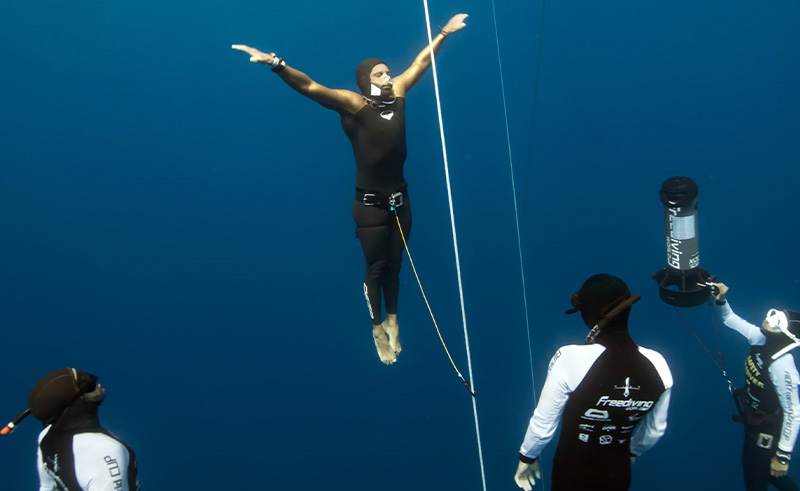
Freediving is a mirror. Outside of the water, you can distract yourself from what you’re feeling. In the water, there’s nowhere to hide. Every dive reflects your emotional state. If I’m not calm, I won’t force it, I channel that energy into a powerful, explosive dive instead. It’s not always the most efficient dive, but it’s honest.
There’s a rule of thirds I live by: a third of your dives will feel incredible, a third will be unremarkable, and a third will be shit. And that’s fine. It’s about accepting that, and choosing to come back anyway. You learn to respect your limits, to listen closely to your body, and in doing so, you’re constantly rediscovering yourself.
El Gammal: I’ve always said that freediving is 80% mental and 20% physical. The mental and physical are interdependent.
I train year-round, even when I’m out of the water. But the real shift begins two to three months before a competition. That’s when I begin my base training in the water and start gradually increasing depth. It’s a careful build-up, not a leap. You don’t go from 10 to 30 metres overnight. You repeat 10 until your body believes it. Then 12, then 15. It's not about ambition, it’s about patience.
Mentally, I focus on alignment. I use meditation, yoga, and Pilates to regulate thought and breath. Every movement in a dive must be intentional. Before I dive, I visualise every part of the descent, from the inhale to the turn. That’s what creates trust between the mind and body.
There’s no space for ‘Inshallah it works out’. We train until our DNA remembers the dive. Until every fibre of our being is convinced that we can go deeper. That kind of discipline, the resistance to push too far too fast, is what makes freediving so powerful. It forces you to meet yourself exactly where you are, and to trust that progress, like breath, can only be sustained in rhythm.
Tell me about the emotional arc of a dive, particularly during a competition or record attempt. What goes through your mind in those final moments before the descent, during the dive, the ascent and when you finally resurface?
El Gammal: I’ve gone deeper than 100 metres several times now, but that first 100 metre attempt —it’s imprinted on me. It’s the one that lives on as a core memory. I had worked up to it gradually—98, then 99. By the time I attempted 100, I knew I was ready. The numbers said it. My body said it. The dive was already written into my system. All I had to do was follow the script.
That morning, I felt excited more than anything. There was no doubt in my mind. But freediving has a way of throwing you curveballs. Ten seconds before I was meant to dive, mid-countdown, someone shouted that a whale shark was circling nearby.
I inhaled, and dove into the unknown, both literally and mentally.
The ‘freefall’ is the pinnacle of the dive. It’s that moment when you pass a certain depth, beyond positive buoyancy, and the sea begins to pull you down. You’re no longer swimming. You’re falling. And yet, unlike any other kind of fall in life, there’s no impact. No pain. Just release.
That’s what keeps me connected to the depth. The surrender. There’s nothing else in life that allows you to fall without consequence. Sometimes, I don’t want to turn. I want to keep descending. To keep falling. To be held by the sea.
But it takes immense discipline to reach that point, to allow yourself to truly let go. You can only fall freely if you’re prepared for the way back up.
When I surfaced after that first 100-metre dive, I celebrated. But I also knew that it wasn’t the end of anything, it was the start. That dive put me on the map. And every time I come up for air now, I feel the same way: like I’m still only just beginning.
Ramadan: The emotional landscape shifts with every competition and every dive. No two dives feel the same, because no two versions of myself are ever quite the same. You’re constantly learning.
Right before I dive, just as I reach the line, I can hear my heartbeat pounding in my head. It’s disorienting, but familiar. Relaxation suddenly feels abstract. At that moment, my last conscious thought is usually something like: “Your body knows what to do.”
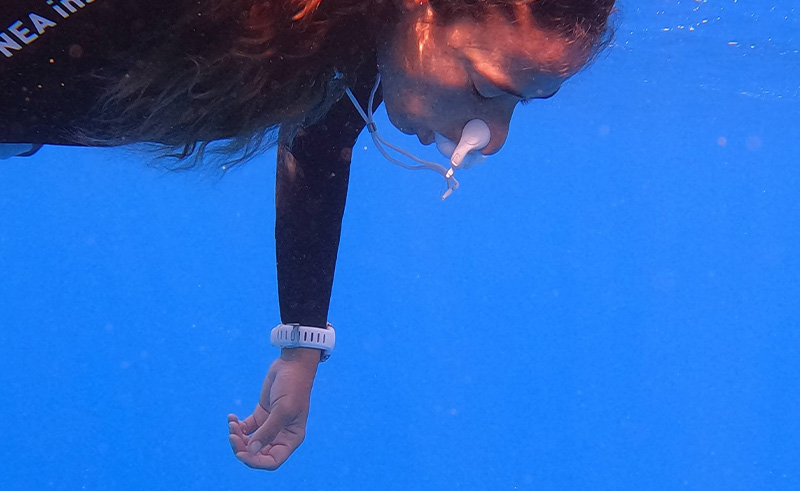
There are different phases of the dive. The first phase of the dive, the descent, is the most physically demanding. You’re still fighting buoyancy, still working. That’s where training takes over. I rely on muscle memory, on repetition, on trust in my body’s instincts. I stay focused on form, on equalisation.
And then… comes the freefall.
It’s a complete surrender. I always imagine the sound a laptop makes when it shuts down—doodoodoo—and I fall into that silence. My body enters a kind of hibernation. My focus narrows to a single point: equalisation. The rest of me lets go.
The alarm is set when I reach the bottom. I wake up, turn and I start my ascent.
The way up for me is always a dance - a waltz between me and the sea.
And when I resurface after a powerful dive, when everything goes right, it’s euphoric. That moment, when you break through the tension, through the pressure, it’s pure.
Freediving is often framed through a lens of danger and adrenaline. What are some of the most common misconceptions about the sport and how would you like to challenge or reframe them?
El Gammal: One of the most ironic misconceptions is that freedivers have a death wish, that we’re somehow flirting with danger for the thrill of it. But for me, and for most serious divers, it’s the opposite. We freedive to live. To truly live.
The public often measures the sport through the narrowest lens, focusing on how long we can hold our breath, or how deep we can go. There’s a fixation on risk, on the spectacle of it. But that framing misses the entire point. Freediving is not about reckless pursuit. It’s about control, presence, and connection, with your body, your breath, the water.
Ramadan: The idea that freediving is some high-octane, adrenaline-fuelled extreme sport - that’s one of the biggest myths out there. In reality, it’s only ‘extreme’ when someone ignores the foundational rules and pushes beyond their limits without adequate preparation. That’s not the nature of the sport; that’s the nature of bad decisions.
Media coverage often gravitates toward those fringe incidents and accidents. But that’s not what the sport is. When practised properly, freediving is safe. Safety protocols are deeply ingrained in our training. Serious incidents are exceptionally rare when divers follow the structure and respect the discipline.
There’s also a misconception that freediving is linear, that your progress will be fast or predictable. Many assume that if they’re strong swimmers or certified scuba divers, they’ll excel instantly. But freediving humbles you. No matter your background, it demands patience, discipline, and self-awareness.
Even after a short break, I return to the water and feel the weight of what I’ve lost, I have to rebuild from the ground up. It’s never a guaranteed climb. You don’t jump from 20 to 40 metres in a few weeks. Some might, but most don’t, and that’s okay. It’s a deeply personal journey.
I always tell people: if you’re standing between ambition and curiosity, choose curiosity. If you approach freediving as a way to understand yourself, to explore, not conquer, you’ll find the depth comes naturally, as a byproduct. It’s not about chasing numbers. It’s about listening inward.
Beyond the challenge, beyond the gear, the flippers, the adrenaline, and the momentum, what is the deeper meaning of freediving to you?
El Gammal: For me, freediving is a journey of self-discovery, connecting with your mind, your body, and your emotions. It’s about understanding why your thoughts wander and where they go. It’s about learning to stay present, understanding your limits, and deepening that connection between mind and body.
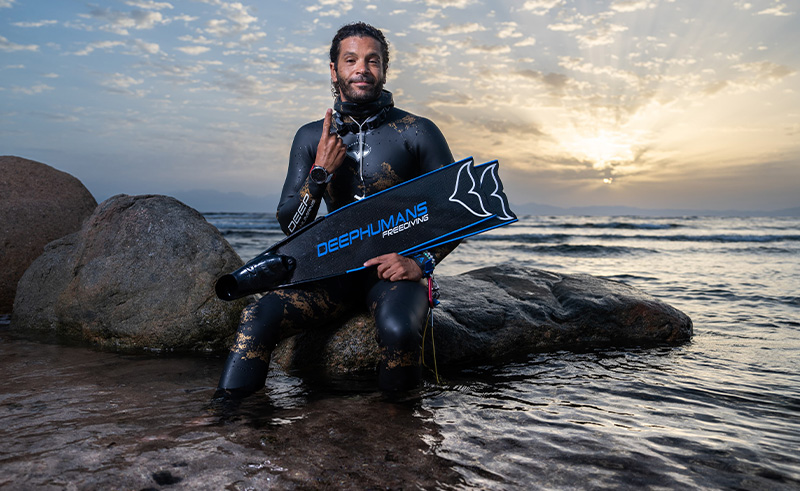
Freediving teaches surrender. It’s not just about physicality, it’s about releasing resistance, both to your own thoughts and to the nature around you. It’s about cultivating resilience, perseverance, and a quiet determination.
The mindset you cultivate through freediving becomes inseparable from life itself. The lessons you learn in the depths extend beyond the water; they shape how you face challenges in everyday life.
Freediving humbles you, it’s a profound reminder that we can never overpower nature. The sea will always be greater than us. But paradoxically, that’s where the power lies: it’s in our acceptance of that humbling truth.
Freediving shows you how small you are in the vastness of nature, yet it also reveals the boundless potential within you. It teaches you to align yourself with something larger than yourself - a force that you must respect and harmonise with.
Ramadan: For me, freediving and the water are my sanctuary. It’s my space to face whatever life is throwing at me, my refuge to release, process, and transcend. Sometimes I dive to unleash explosive power; other times, I simply descend to be present with whatever I’m going through. On some days, there’s no goal beyond the descent itself. I dive just to exist, to find stillness beneath the surface.
In the water, you have to sink into what’s inside, to confront your emotions, your thoughts. It’s a raw, unfiltered encounter with yourself.
Freediving echoes life: it’s unpredictable, full of peaks and troughs. There’s no straight line to progress; it teaches you to surrender to the flow, to accept the highs and the lows, to sink into the experience instead of resisting it.
- Previous Article Egypt’s Rahma Zein Addresses European Parliament on Palestine
- Next Article Meet the Women Setting the Pace in Saudi Arabia’s Running Scene







